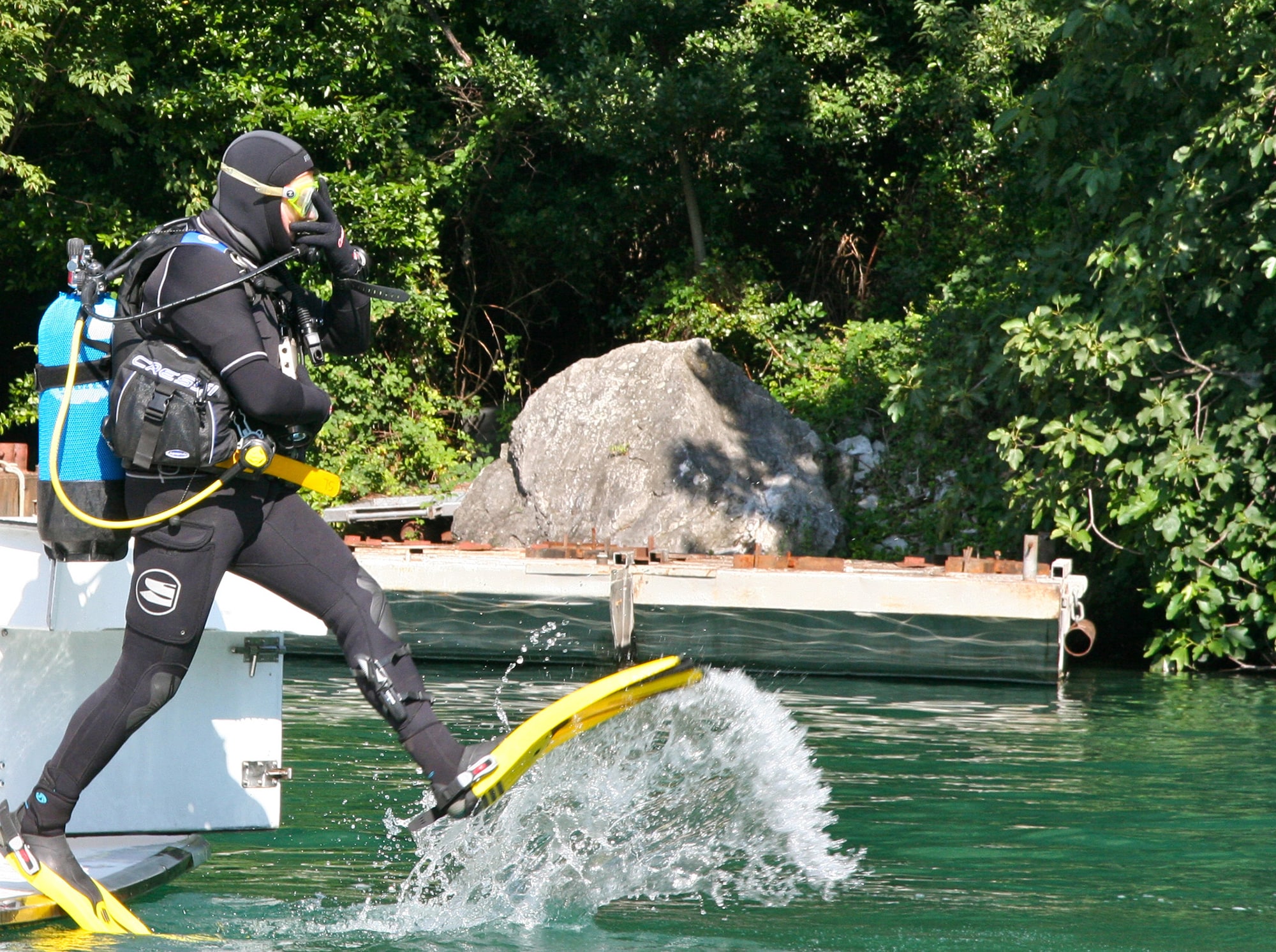Grounded? Considering the Effects of Hip Replacement and Subcu Bubbles
Get Hip to Diving After Surgery
I am 59 years old and had hip replacement surgery two months ago after an automobile accident. I have completely recovered and started a muscle-strengthening program prescribed by my doctor. I have been certified for a number of years and do not want to give up scuba diving. When would it be safe to go back to diving, and are there any problems with diving following hip replacement surgery?
DAN Member
The greatest concern for any type of exercise after hip replacement surgery is that the surgical site and bone need to be completely healed.
You are most likely free to dive when:
a) your doctor releases you for full activity; and
b) you are able to perform your exercise and daily living activities.
Here’s the kicker: you should be able to bear your full weight on your hips; plus you should have no difficulties such as pain, swelling or stiffness. There isn’t much difference between the physical demands placed on your hip during a workout in the gym and during scuba diving. As long as the area has an adequate blood flow to help with the offgassing of nitrogen, a problem is unlikely.
If you – and your body – answer affirmatively to these caveats, then you can begin planning your first dive with your new hip. Take it easy, though. As with any type of injury and returning to diving, there is no guarantee that you will not have an injury to your hip. However, the greatest risk divers run is the amount of exposure (depth and time) they have to nitrogen. It might be wise to dive conservatively by not diving as deep, as long or as often when you return to diving.
Diving Got Under His Skin
I went diving over the weekend, making three dives daily, finishing about noon on Sunday. I had some trouble clearing on both days, and on the last dive I had a reverse squeeze (ear barotrauma upon ascent). I can hear just fine and I don’t have any pain, but on the side of my neck I have several little bubbles that I can press on but which are not painful. Have you ever heard of this?
DAN Member / Instructor
This is called subcutaneous emphysema, a grim-sounding name with, happily, a cure. From where did these bubble arise, though? It is likely that this trapped air originated from pulmonary barotrauma: sometimes the lungs are overpressurized, for instance, when we have difficulty clearing. Air bubbles don’t normally exist under the skin in the neck – or anywhere else in body tissues. It is not likely that your bubbles came from your middle ear, but both pulmonary and ear barotrauma can occur at the same time.
Middle ear barotrauma of ascent can divert your attention from maintaining an open airway; so can the act of trying to clear blocked Eustachian tubes. It can also can easily damage the tympanic membrane or one of the more delicate internal membranes associated with sound transmission inside of the ear. A brief episode, however, may not cause ear pain or other symptoms (such as a ringing or roaring sound, or muffled hearing).
Barotrauma can happen when we attempt forceful clearing of the sinuses and/or middle ear during a dive. This actually increases the pressure in the air spaces of the lung and creates very small openings in lung tissue; this allows quantities of air to travel up to the shoulder, neck or even the face.
The injury can occur on prior dive days, and the repetitive diving may allow small quantities of air to track its way up into the neck. Divers may not notice the air bubbles unless they develop symptoms like feeling the bubbles move, voice change, swelling or pressure in the neck and face.
Although it is not possible to say exactly how this occurred, it is in your best interest to have an evaluation by a local ear, nose and throat specialist before returning to diving. There is also a possibility of an undiagnosed pulmonary problem causing this event. A pulmonary overpressure accident is a contraindication to further diving until you’ve been evaluated by a diving medical expert.

